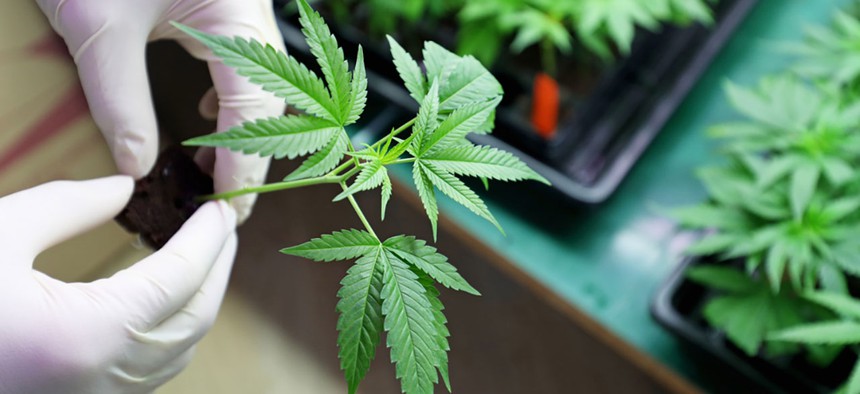
photolona/Shutterstock.com
The CDC Wants You To Know That Trimming Cannabis Leaves May Cause Carpal Tunnel
The highly repetitive motion could conceivably give marijuana farmers a pinched nerve.
Marijuana cultivation has its highs… and its lows. This month, the Centers for Disease Control published a small occupational health assessment of the potential risks associated with marijuana farming. Those who frequently trim marijuana buds, they concluded, may be at a slightly higher risk of developing muscular-skeletal problems from all the repetitive motion—namely, carpal tunnel syndrome.
Carpal tunnel occurs when the medial nerve running from the forearm to the hand becomes compressed as a result of the muscles and tendons around it becoming chronically inflamed from overuse. Pinching the nerve can cause tingling sensations in the fingers (like when your leg falls asleep), and can sometimes make them harder to move or grip. The typical treatment for carpal tunnel is usually rest, and occasionally surgery in extreme cases.
Usually, carpal tunnel only shows up in people who have manual jobs using their hands—things like hair-cutting, meatpacking, or factory assembly lines. However, because most of the research on marijuana has do to with the effects of THC (the active ingredient when used medicinally or recreationally), occupational health specialists have done little to study the effects of marijuana farming itself.
In 2015, the United Food and Commercial Workers International Union, based in Washington, DC, put out a request to the National Institute for Occupational Safety and Health (which is part of the CDC) to evaluate working conditions of marijuana farmers. A team of evaluators visited a 5-acre, pesticide-free farm in Washington state that employs three workers. After interviewing and examining all the workers and the farmer, the evaluation team concluded that the grip used by farmers as they trim buds may lead to carpal tunnel syndrome. Although the workers hardly used any force on the scissors, the team noted that it was “highly repetitive work.” None of the employees actually had carpal tunnel at the time of the safety assessment.
The evaluation team also noted the widespread prevalence of THC in the environment, and that there were some potential allergens floating in the air.
NEXT STORY: Washington Has Meddled in Elections Before






